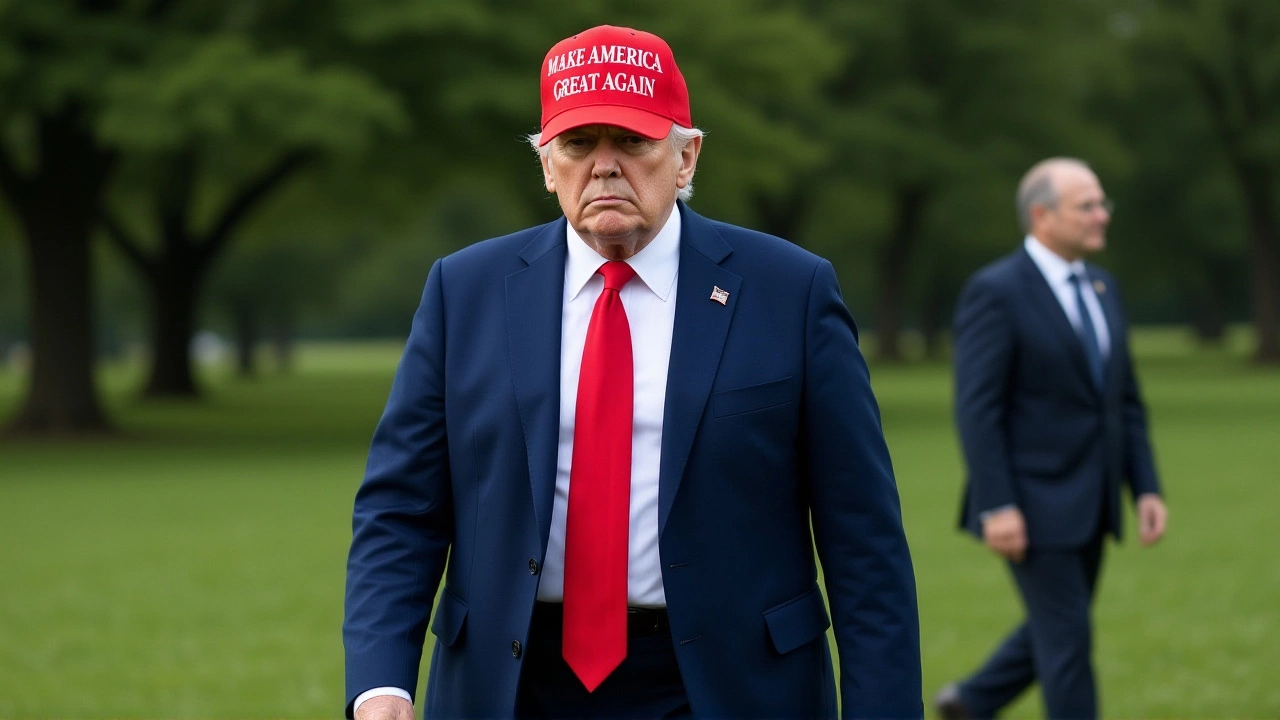On Friday, May 2, 2025, Washington D.C. federal judge Beryl Howell delivered a landmark rebuke to Donald J. Trump, permanently blocking his executive order targeting the law firm Perkins Coie LLP. The 102-page ruling called the order "unconstitutional retaliation" and "viewpoint discrimination, plain and simple," shutting down an unprecedented attempt to punish lawyers for representing clients the president dislikes. The decision didn’t just stop enforcement—it dismantled the legal logic behind it, sending shockwaves through the legal community and raising alarms about the erosion of professional independence.
Why Perkins Coie Became a Target
The executive order, signed by Trump on March 6, 2025, at the White House, didn’t just restrict business—it weaponized federal power. Perkins Coie employees lost security clearances. Attorneys were barred from government buildings. Contracts worth millions were terminated. The Equal Employment Opportunity Commission was ordered to investigate the firm’s hiring practices. All because, as Judge Howell wrote, the firm "expressed support for employment policies the President does not like, represented clients the President does not like, represented clients seeking litigation results the President does not like, and represented clients challenging some of the President’s actions." The White House pointed to Perkins Coie’s role in representing Hillary Rodham Clinton’s 2016 campaign and its former partner, Marc Elias, who hired former British intelligence officer Christopher Steele to compile the infamous dossier on Trump-Russia ties. Elias left the firm in 2021, but the administration still held Perkins Coie accountable. "It’s not about national security," Howell said. "It’s about punishing dissent."A Judge’s Shakespearean Warning
Judge Howell didn’t just cite legal precedent—she reached for history. "In purpose and effect, this action draws from a playbook as old as Shakespeare," she wrote, referencing the line from Henry VI, Part II: "The first thing we do, let’s kill all the lawyers." She added, "In a cringe-worthy twist on the theatrical phrase, Trump’s executive order takes the approach of ‘let’s kill the lawyers I don’t like,’ sending the clear message: lawyers must stick to the party line, or else." Her words weren’t poetic flourish—they were a warning. The legal profession exists to uphold the rule of law, not to serve political convenience. "Eliminating lawyers as the guardians of the rule of law removes a major impediment to the path to more power," she wrote. And in that sentence, she framed the entire threat: this wasn’t about accountability. It was about control.The Legal Timeline: A Race Against Time
Perkins Coie moved fast. Just five days after the order was signed, on March 11, 2025, it filed a complaint and motion for a temporary restraining order. Judge Howell granted it the same day. By March 12, she extended the injunction through final judgment. On March 14, Perkins Coie asked for clarification; Howell responded on March 18. The Trump administration, desperate to derail the process, filed a motion to disqualify Howell on March 19—only to have it ignored as legally baseless.Other Firms, Other Fates
Perkins Coie’s victory is historic—but it’s not isolated. Trump has issued similar orders against Jenner & Block, WilmerHale, and Susman Godfrey. In fact, U.S. District Judge John D. Bates already ruled Trump’s order against Jenner & Block was "an unconstitutional act of retaliation." But here’s the twist: at least nine other firms chose to surrender. They agreed to provide hundreds of millions of dollars in free legal services to causes Trump supports, hoping to escape punishment. The cost? According to advocacy group Demand Justice, firms like Paul Weiss and Skadden are now facing "massive fallout and a cascade of high-profile resignations." Associates and partners, disillusioned by the moral compromise, are walking out. "These deals don’t eliminate the threat," Howell noted. "They just delay it. And in the meantime, clients lose their right to unencumbered legal counsel."
The Bigger Picture: Protecting the Rule of Law
This ruling isn’t just about one firm. It’s about the foundation of American justice. For over two centuries, the legal profession has operated as a check on power—not a tool of it. Judges, lawyers, and law firms are meant to represent clients regardless of popularity. If the government can punish attorneys for defending unpopular causes, the entire system fractures. Howell emphasized: "The importance of independent lawyers to ensuring the American judicial system's fair and impartial administration of justice has been recognized in this country since its founding era." That’s not rhetoric. It’s constitutional bedrock.What Happens Next?
Judge Howell ordered Attorney General Pam Bondi and OMB Director Russell Vought to distribute her opinion to every federal agency that received the executive order. That’s not ceremonial—it’s mandatory. Agencies must now undo the damage: restore security clearances, reopen doors, reinstate contracts. But Trump’s team isn’t done. Legal experts say an appeal to the D.C. Circuit Court is inevitable. And if the administration doubles down, it could force a showdown with the Supreme Court. Meanwhile, Perkins Coie is preparing to seek damages for lost revenue and reputational harm. The fight isn’t over. But for now, the law won.Frequently Asked Questions
Why did Judge Howell reference Shakespeare in her ruling?
Judge Howell used Shakespeare’s line "let’s kill all the lawyers" to highlight how Trump’s order mirrors historical attempts to dismantle legal checks on power. By targeting Perkins Coie for its legal representation, the administration wasn’t just punishing a firm—it was signaling that lawyers who challenge authority are expendable. The reference wasn’t ornamental; it was a stark warning about authoritarian tendencies.
How does this affect other law firms that made deals with Trump?
Firms like Paul Weiss and Skadden that agreed to provide free legal work to Trump-aligned causes now face internal revolts and public backlash. Lawyers are resigning in protest, clients are withdrawing, and ethical watchdogs are questioning their independence. The ruling reinforces that these deals are temporary fixes—they don’t erase the threat, and they compromise the profession’s integrity.
What’s the legal precedent for blocking executive orders targeting law firms?
Judge Howell’s ruling builds on a previous decision by Judge John D. Bates, who blocked Trump’s order against Jenner & Block as unconstitutional retaliation. But this is the first permanent injunction against a law firm targeting order. It sets a stronger precedent by explicitly naming viewpoint discrimination as a violation of the First Amendment, making future attempts harder to justify.
Could Trump still retaliate against Perkins Coie in other ways?
Yes. While this order is blocked, Trump could issue new directives under different justifications—like "national security" or "ethical misconduct." But Howell’s ruling makes it harder to hide political motives. Any new action will face immediate legal scrutiny, and courts are now on notice that targeting lawyers for their representation is constitutionally suspect.
What does this mean for clients of targeted law firms?
Clients—especially those involved in politically sensitive cases—now have greater assurance that their lawyers won’t be punished for taking their cases. The ruling reinforces that legal representation is a constitutional right, not a political favor. Without this protection, vulnerable groups would struggle to find counsel willing to represent them against powerful interests.
Is this ruling likely to be appealed?
Absolutely. The Trump administration has already shown a willingness to challenge judicial rulings at every level. An appeal to the D.C. Circuit Court is expected, and if necessary, the case could reach the Supreme Court. But with two federal judges already rejecting similar orders, the legal tide is turning against political retaliation against lawyers.
